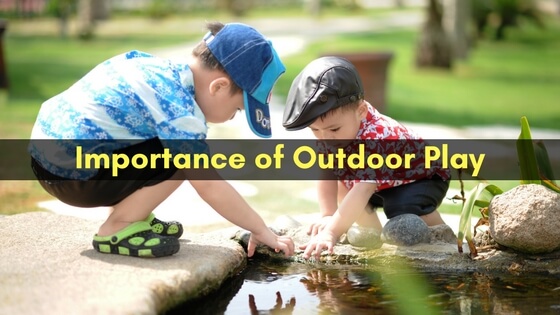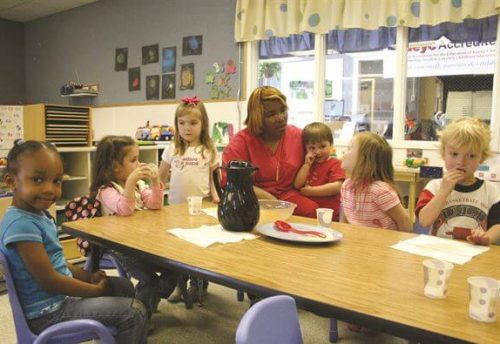
Importance of Outdoor Play
All study and no play makes Jack a dull boy! I bet we’ve all heard this at some point in our life. But, we don’t really give much thought to this and most kids aren’t given enough outdoor play time.
Being outside is the perfect place for kids to be kids with the freedom to shout, jump, run, hop or skip. In fact, by taking your children outdoors and supporting their play, you can help their development.
Young children need the opportunity to use their whole body and develop their gross motor skills.
It’s only when they have mastered these that they will be able to control their fine motor skills, such as using a knife and fork or holding a pencil, for instance.
As a result, children playing outside can have a positive impact.
Children are benefited greatly by outdoor play, here are a few benefits of outdoor play:
1. Outside play fosters “social, emotional, and cognitive competencies” in kids, including strengthening the language and communication interactions between young children who play together at the park.
2. Increasing children’s exposure to green outdoor spaces (e.g., lush playgrounds) could help decrease children’s’ stress levels by offering them an escape from life’s daily routine.

3. Green outdoor settings appear to reduce ADHD symptoms in children, which includes the exposure they get to natural settings like parks and beaches through after-school and weekend activities.
Overall, it’s becoming increasingly more apparent that these types of outdoor activities may be widely effective in reducing attention deficit symptoms in children.
4. Outdoor play enables young children to learn lots and lots and lots of things about the world.
How does ice feel and sound? Can sticks stand up in the sand? How do plants grow? How does mud feel? Why do we slide down instead of up? How do I make my tricycle go faster?
How does the overhang of the building create cool shade from the sun?
Not only do children learn lots of basic and fundamental information about how the world works in a very effective manner, they are more likely to remember what they learned because it was concrete and personally meaningful.

5. Many teachers and administrators believe that after intense (and often inactive) academic classroom pursuits, children need to “let off steam.”
To some extent, educators also believe that outdoor play enables children to “recharge their batteries,” to reinvigorate themselves by engaging in a very different activity from their classroom experience.
This recreation theory of play enables children to get ready to return to the important work of academic learning.
6. Playground equipment like climbers and overhead hanging apparatuses present kids with physical challenges, and free play encourages them to take risks.
When kids take that risk and overcome the challenge, they develop a sense of accomplishment that leads to higher self-esteem.
Free play also encourages children to develop skills that build self-confidence, such as conflict resolution and imaginative dramatic play.
Social development with children and the ability to play on their own are also important factors in building self-confidence.
7. Some may think that playing alone encourages children to shy away from others.
On the contrary, solitary play helps kids socially, as it develops a strong sense of independence, promotes creativity and imagination and alleviates boredom when they devise their own entertainment.
When a child plays alone on the playground, they can also learn social cues by observing other kids’ interactions without being part of them.
8. Inclusion is an important value that children learn from the playground. Research has shown that children assign a value to those who they “think” they can play with and those they cannot.
Their perception is that those who play are contributors, and those who don’t play are not.
Therefore, children with disabilities who are prevented from playing on playgrounds because of non-inclusive equipment or surfacing are already facing the disadvantage of being recognized by their peers as having a lesser value than the children that are playing.





Leave a Reply